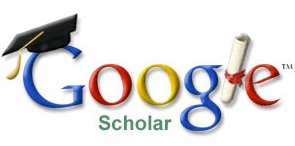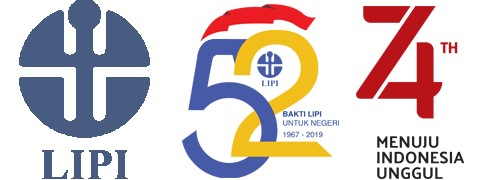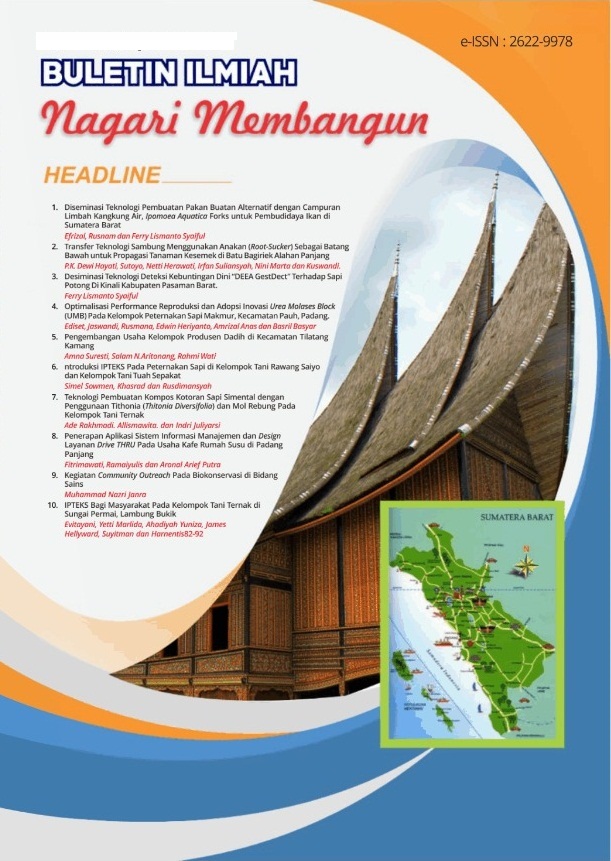EKOLITERASI SISWA MELALUI PENGELOLAAN SAMPAH DI SDN 08 KOTO GADANG KECAMATAN IV KOTO KABUPATEN AGAM
Abstract
The concept of sustainable development arises because of concerns about the accelerated deterioration of environmental conditions caused by behavior that only aims to meet needs without considering the negative impact on the environment in the future. One of them is the waste management system which is still carried out with the collect-transport-disposal system. To prevent the negative impacts of waste that are increasing all the time, such as the emergence of vectors, odors, and smoke due to combustion, a better way of waste management is needed, namely reducing waste through reduce, reuse, and recycle (3R). Through fostering students' eco-literacy about the importance of the 3Rs, it is hoped that there will be a change in students' mindset from an early age to prevent future environmental crises and a behavioral transition to a sustainable lifestyle, especially those who are accustomed to reducing waste. The purpose of this activity is to increase school commitment and student behavior to get used to the 3Rs in everyday life. This activity was carried out at SDN 08 Koto Gadang, District IV Koto, Agam Regency, in the form of counseling, 3R leaflets, and the provision of separate trash bins between organic, paper, and plastic. Pre-test and post-test activities were carried out to assess changes in students' knowledge about the extension material provided. This activity indicates an increase in students' knowledge about reducing, reuse, and recycle. It is hoped that schools can take advantage of the trash bins provided so that all school residents can dispose of waste according to its type so that the remaining waste is easier to process in subsequent handling.
Downloads
References
Badan Perencanaan Pembangunan Nasional. 2017. Buku Putih Sanitasi Kabupaten Agam.
Bartl, A. 2014. Ways and entanglements of the waste hierarchy, waste management. Pergamon, 34(1): 1–2.
Dharmawati, D. M., Nadiroh, N. and Marini, A. 2020. Developing entrepreneurship education model in improving the skills of recycling of elementary school students, al ibtida: Jurnal Pendidikan Guru MI, 7(1): 117–131.
Dinkes Agam. 2015. Laporan EHRA (Environmental Health Risk Assessment). Lubuk Basung: Dinas Kesehatan Kabupaten Agam.
Ek, C. and Magnus, S. 2020. Does teaching school children about recycling reduce household waste?’
Honig, A. S. and Mennerich, M. 2013. What does ‘go green’mean to children?’, Early Child Development and Care. Taylor & Francis, 183(2): 171–184.
Iliopoulou, I. 2018. Children’s thinking about environmental issues, Educational Research. Taylor & Francis, 60(2): 241–254.
Kahriman-Ozturk, D., Olgan, R. and Guler, T. 2012 ‘Preschool Children’s Ideas on Sustainable Development: How Preschool Children Perceive Three Pillars of Sustainability with the Regard to 7R.’, Educational Sciences: Theory and Practice. ERIC, 12(4): 2987–2995.
Locke, S., Russo, R. O. and Montoya, C. 2013. Environmental education and eco-literacy as tools of education for sustainable development. Journal of Sustainability Education, 4(1): 1–13.
McBride, B. B. et al. 2013. Environmental literacy, ecological literacy, ecoliteracy: What do we mean and how did we get here?, Ecosphere. Wiley Online Library, 4(5): 1–20.
Sari, P. N. 2016. Analisis pengelolaan sampah padat di Kecamatan Banuhampu Kabupaten Agam. Jurnal Kesehatan Masyarakat Andalas, 10(2): 157–165.
Sekretariat Negara RI. 2008. Undang-Undang Nomor 18 tahun 2008 tentang Pengelolaan Sampah, Sekretariat Negara, Jakarta.
Subekti, S. 2010. Pengelolaan sampah rumah tangga 3R berbasis masyarakat. Prosiding SNST Fakultas Teknik, 1(1).
Undang Nomor 18 Tahun 2008 tentang Pengelolaan Sampah (no date).
Windraswara, R. and Prihastuti, D. A. B. 2017. Analisis potensi reduksi sampah rumah tangga untuk peningkatan kualitas kesehatan lingkungan, Unnes Journal of Public Health, 6(2): 123–130.





















